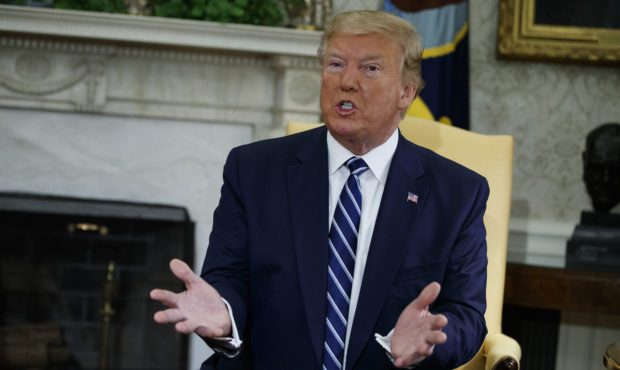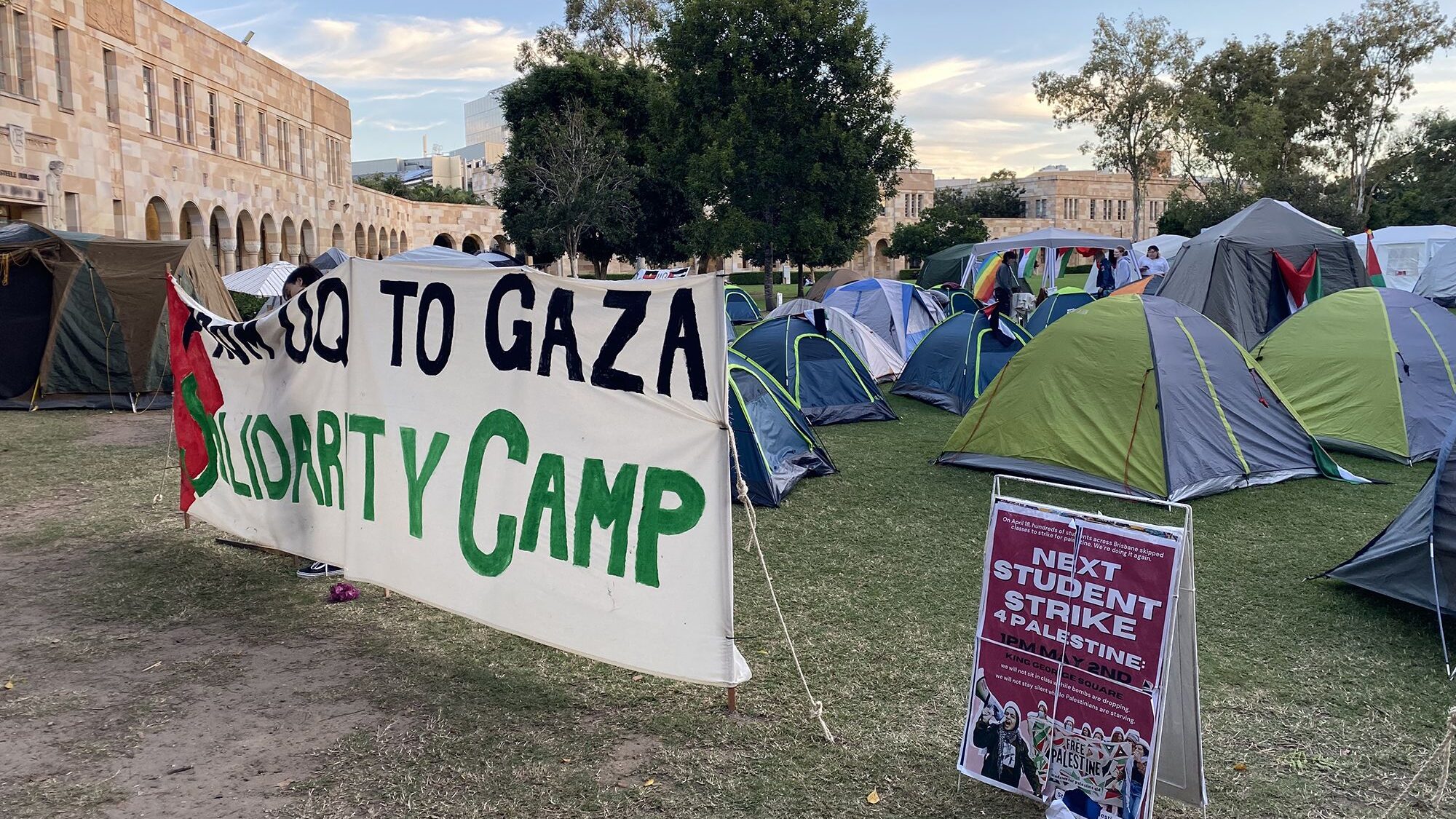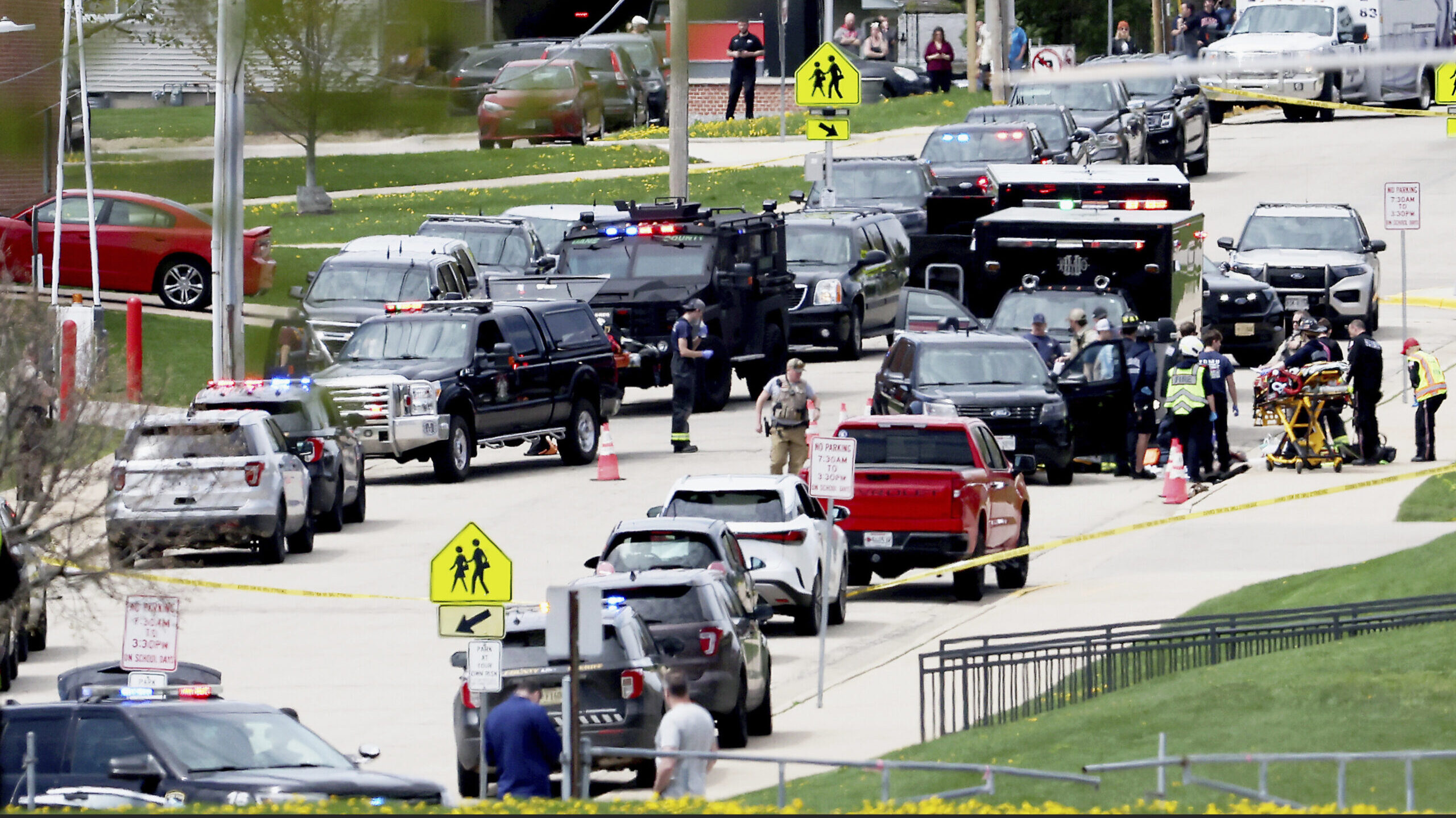US prepped for strikes on Iran before approval was withdrawn
Jun 21, 2019, 5:14 AM | Updated: 5:30 am

President Donald Trump speaks during a meeting with Canadian Prime Minister Justin Trudeau in the Oval Office of the White House, Thursday, June 20, 2019, in Washington. Trump declared Thursday that "Iran made a very big mistake" in shooting down a U.S. drone but suggested it was an accident rather than a strategic error. (AP Photo/Evan Vucci)
(AP Photo/Evan Vucci)
WASHINGTON (AP) — The United States abruptly called off preparations for a military strike against Iran over the downing of a U.S. surveillance drone, a U.S. official said, while Iran claimed Friday it had issued several warnings before shooting down the drone over what it said was Iranian territory.
The Trump administration offered no immediate public account of the thinking behind the last-minute halt in U.S. preparations for retaliation, amid days of escalating tensions between the two countries. A U.S. official, who was not authorized to discuss the operation publicly and spoke on condition of anonymity, said the targets would have included radars and missile batteries.
The swift reversal was a stark reminder of the serious risk of military conflict between U.S. and Iranian forces as the Trump administration combines a “maximum pressure” campaign of economic sanctions with a buildup of American forces in the region. As tensions mounted in recent weeks, there have been growing fears that either side could make a dire miscalculation that led to war.
On Friday, the head of Iran’s Revolutionary Guard’s aerospace division told Iranian state television that Iran had warned a U.S. military surveillance drone several times before launching a missile at it.
Gen. Amir Ali Hajizadeh made the comments standing in front of what Iranian authorities described as pieces of the U.S. Navy RQ-4A Global Hawk drone.
Hajizadeh told state TV: “Unfortunately they did not answer.”
He added Iran collected the debris from its territorial waters. The U.S. military says that the drone was in international airspace over the Strait of Hormuz when it was shot down.
The New York Times separately reported that President Donald Trump had approved the strikes Thursday night, but then called them off. The newspaper cited anonymous senior administration officials.
Asked earlier in the day about a U.S. response to the attack, Trump said, “You’ll soon find out.”
According to the official who spoke to The Associated Press, the strikes were recommended by the Pentagon and were among the options presented to senior administration officials.
It was unclear how far the preparations had gone, but no shots were fired or missiles launched, the official said.
The military operation was called off around 7:30 p.m. Washington time, after Trump had spent most of Thursday discussing Iran strategy with top national security advisers and congressional leaders.
The downing of the U.S. drone — a huge, unmanned aircraft — over the Strait of Hormuz prompted accusations from the U.S. and Iran about who was the aggressor. Iran insisted the drone violated Iranian airspace; Washington said it had been flying over international waters.
Trump’s initial comments on the attack were succinct. He declared in a tweet that “Iran made a very big mistake!” But he also suggested that shooting down the drone — which has a wingspan wider than a Boeing 737 — was a foolish error rather than an intentional escalation, suggesting he may have been looking for some way to avoid a crisis.
“I find it hard to believe it was intentional, if you want to know the truth,” Trump said at the White House. “I think that it could have been somebody who was loose and stupid that did it.”
Trump, who has said he wants to avoid war and negotiate with Iran over its nuclear ambitions, cast the shootdown as “a new wrinkle … a new fly in the ointment.” Yet he also said “this country will not stand for it, that I can tell you.”
He said the American drone was unarmed and unmanned and “clearly over international waters.” It would have “made a big, big difference” if someone had been inside, he said.
But fears of open conflict shadowed much of the discourse in Washington. As the day wore on, Trump summoned his top national security advisers and congressional leaders to the White House for an hour-long briefing in the Situation Room. Attendees included Secretary of State Mike Pompeo, national security adviser John Bolton, CIA Director Gina Haspel, Joint Chiefs Chairman Gen. Joseph Dunford, acting Defense Secretary Patrick Shanahan and Army Secretary Mark Esper, whom Trump has said he’ll nominate as Pentagon chief.
Pompeo and Bolton have advocated hardline policies against Iran, but Rep. Adam Schiff, the chairman of the House intelligence committee, said “the president certainly was listening” when congressional leaders at the meeting urged him to be cautious and not escalate the already tense situation.
On Capitol Hill, leaders urged caution, and some lawmakers insisted the White House must consult with Congress before taking any actions.
House Speaker Nancy Pelosi said no specific options for a U.S. response were presented at the meeting. Senate Majority Leader Mitch McConnell said, “The administration is engaged in what I would call measured responses.” And late Thursday, House Republicans on the Foreign Affairs, intelligence and Armed Services committees issued a statement using the same word, saying, “There must be a measured response to these actions.”
The Trump administration has been putting increasing economic pressure on Iran for more than a year. It reinstated punishing sanctions following Trump’s decision to pull the U.S. out of an international agreement intended to limit Iran’s nuclear program in exchange for relief from earlier sanctions.
Citing Iranian threats, the U.S. recently sent an aircraft carrier to the Persian Gulf region and deployed additional troops alongside the tens of thousands already there. All this has raised fears that a miscalculation or further rise in tensions could push the U.S. and Iran into an open conflict 40 years after Tehran’s Islamic Revolution.
The paramilitary Guard, which answers only to Supreme Leader Ayatollah Ali Khamenei, said it shot down the drone at 4:05 a.m. Thursday when it entered Iranian airspace near the Kouhmobarak district in southern Iran’s Hormozgan province. Kouhmobarak is about 1,200 kilometers (750 miles) southeast of Tehran.
Taking issue with the U.S. version of where the attack occurred, Iranian Foreign Minister Mohammad Javad Zarif tweeted that his country had retrieved sections of the military drone “in OUR territorial waters where it was shot down.” He said, “We don’t seek war but will zealously defend our skies, land & waters.”
Air Force Lt. Gen. Joseph Guastella, commander of U.S. Central Command air forces in the region, disputed that contention, telling reporters that the aircraft was 34 kilometers (21 miles) from the nearest Iranian territory and flying at high altitude when struck by a surface-to-air missile. The U.S. military has not commented on the mission of the remotely piloted aircraft that can fly higher than 10 miles in altitude and stay in the air for over 24 hours at a time.
“This attack is an attempt to disrupt our ability to monitor the area following recent threats to international shipping and free flow of commerce,” he said.
Late Thursday, the Federal Aviation Administration barred American-registered aircraft from flying over parts of the Persian Gulf and the Gulf of Oman and several major airlines from around the world on Friday began rerouting their flights to avoid the area, including British Airways, Australia’s Qantas, Germany’s Lufthansa and the Dutch carrier KLM.
Democratic leaders in particular urged the president to work with U.S. allies and stressed the need for caution to avoid any unintended escalation.
Sen. Chuck Schumer of New York said he told Trump that conflicts have a way of escalating and “we’re worried that he and the administration may bumble into a war.”
____
Associated Press writers Jill Colvin, Lisa Mascaro and Matthew Lee in Washington, Jon Gambrell in Dubai, United Arab Emirates, and AP video producer Padmananda Rama contributed to this report.













